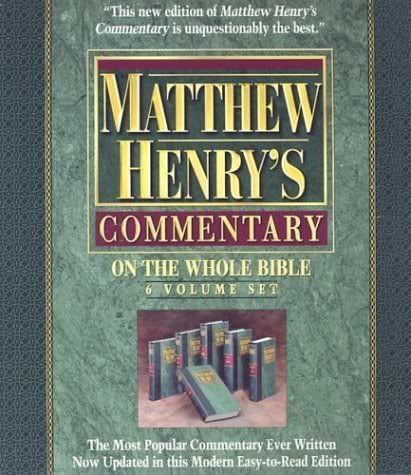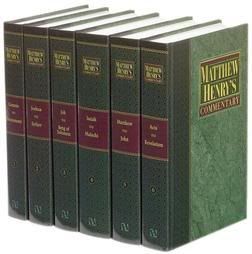Anyone who regularly watches the Christian blogosphere will have probably noticed the big outcry this week over Dr. John Piper using the word “ass” in a Passion ’07 session. Speaking to thousands of youth, John Piper found it appropriate to talk about how sometimes God must “kick our ass” (i.e., discipline us) when we get out of line. Piper’s usage of the word caused hardly a stir in the audience, but apparently a few parents were offended and thus Piper issued an
apology. Yet some still think that Piper’s apology was not enough (it didn’t call cussing a sin, and said sometimes it may be fine to use cuss words), and certain evangelicals like
Dr. Wayne Grudem have sent him letters outlining a theological argument against cussing.
Knowing that the Bible does not outright prohibit the use of obscenities in speech (though it does prohibit profanity – I’ll get to that later), Grudem’s argument is that believers should avoid such words because they ought to have a reputation for “cleanliness.”
Said Grudem, “Using the words commonly thought to be offensive in the culture seems to me to be sort of the verbal equivalent of not wearing deodorant and having body odor, or of going around with spilled food on our shirts all the time. Someone might argue that not wearing deodorant or wearing dirty clothes are not morally wrong things in themselves, but my response is that they do give needless offense and cause others to think of us as somewhat impure or unclean. So, I think, does using words commonly thought to be "obscene" or "offensive" or "vulgar" in the culture generally.”
Grudem does have a valid point here. When believers use such words in public, some people will automatically judge them because they have grown up considering certain words as sinful. However, Grudem’s argument only goes so far. What about when the believer is around people who are simply not offended by “cuss words” and would not view the words as “unclean”?
I remember back in my high school drama class when I was in front of the class casually talking to some friends. At one point, my drama teacher expressed shock over something I said and told me to “apologize immediately.” Now, I really had no idea what she was reacting to, so I wasn’t sure what she wanted me to apologize about. One of my friends then pointed out that I had used the word “suck,” and so I apologized to her. Now, for me, saying the word caused no guilt feelings, as some people have when they say certain words. Using the word “suck” is like using any other word to me. But some people, including my drama teacher, find the word genuinely unacceptable and sinful, and thus they are shocked when they hear such words used. I really had no way of knowing she was offended by the word, however, since many of my teachers and even youth pastors had also used the word and took no offense to my ever using it.
I also remember another incident, which happened fairly recently, in which I was sitting near the front at Bellevue. In the middle of Dr. Steve Gaines’ giving the customary welcome to visitors, the power suddenly turned off, causing all the lights to go out and giving off a loud noise. Being startled, I used the word “crap,” though immediately I noticed that the people sitting in the rows in front of me, who were all probably fifty years older than I, may not appreciate the word “crap.” So, I was pretty embarrassed, though no one around me reacted negatively. During the greeting time, I was asked by one older couple if I was a first time visitor, though, which led me think they probably heard my words.
Now, in these incidents, I was around people who took offense to the words “suck” and “crap,” though in the general culture, most people do not view these words as cuss words. Now, it was probably not wise to use these words in these situations, but let’s go back to Grudem’s argument. Grudem argues that one should only use words that are culturally acceptable, to give the appearance of cleanliness. However, what makes a word culturally acceptable?
Let’s go back to Piper’s use of the word “ass.” As I said before, Piper was speaking before a crowd of thousands of youth, and there is no evidence that the crowd so much as blinked at his language. (No one, not even any bloggers, knew of the incident until Piper wrote an apology.) Why? The word “ass” is a word that is accepted in these kids’ culture. What many people like Grudem often do not realize is that a word that is offensive to them is not offensive to everyone. For the youth whom Piper was speaking to, “ass” is the same as Grudem’s suggested word, backside. They have no guilt feelings when saying or hearing the word. Their ears do not suddenly perk when they hear the word, like my drama teacher’s ears did when I used the word “suck.”
Let me also use an example from the Bible to further illustrate my point. In the King James Version of the Bible, 2 Kings 18:27 says, "But Rabshakeh said unto them, Hath my master sent me to thy master, and to thee, to speak these words? hath he not sent me to the men which sit on the wall, that they may eat their own dung, and drink their own piss with you?" Now, in modern times, the word “piss” has a much different connotation for many people than it would have a few hundred years ago. Newer translations no longer render it this way. But then, the word “piss” was a culturally accepted word. (Even in modern times, though, many people take no offense to the word.)
Now, it’s important for me at this point to discuss the difference between “profanity” and “obscenities.” I would view a profanity as a holy word that is used in a common way. For instance, many in our culture accept taking the Lord’s name in vain, or using Jesus’ name in an exclamatory way. People in our culture do this all the time, and people generally take the Lord’s name in vain more often than they will use stronger cuss word in public. However, using God’s name like this is always wrong, as the fourth commandment says, “You shall not take the name of the LORD your God in vain, for the LORD will not hold him guiltless who takes his name in vain.” Obscenities, on the other hand, would be words that the culture finds offensive, but are not necessarily profane.
What are we to do with culturally taboo words, then? The key here, I think, is discernment. Some things you just don’t say in polite company. This goes even beyond words. Circumcision is a topic talked about in the Bible, but you won’t often find it to be a topic at the dinner table (though, this example came to my mind because I have heard about this talked about at the dinner table before!). Many passages in the Bible, including the 2 Kings passage quoted above, or Scriptures like Ezekiel 23, would also be offensive in polite company. This doesn’t mean these Scriptures themselves are sinful, it just means that there are certain topics that are “off limits” in certain situations. We ought to be all things to all people, and this means not saying certain words or discussing certain topics around people who are offended by them, or during times that it would be inappropriate. Grudem took issue with Piper’s suggestion that there is more offensive language in the Bible than the word “ass,” assuming he meant Paul’s writing in Philippians 3:8, in which he uses the Greek word “skubalon” which many think now would be rendered as “sh--.” Grudem says Paul may have been simply meaning garbage. Whatever Paul meant here, surely Grudem does not believe that drinking one’s excrement, as 2 Kings talks about, is not at least more offensive than using the word “ass.” No matter how the word “piss” is rendered, the entire concept is… well… sick! Yet, it’s in the Bible.
Are there any situations where “cuss words” can be, or even should be, used, then? Ra McLaughlin of Third Millenium Ministries
uses an example in which using an obscenity could actually help further the gospel: “My friend and fellow seminarian was witnessing on the street to some of the Goth crowd who were into Wicca. Their own language was vulgar, but they did not perceive it as vulgar. In presenting the gospel to them, in an attempt to communicate to them on a level that they could really understand, my friend pointed out the fact to them that since the Fall, the world has been "totally f**ked up." Their response was a contemplative and agreeing "yeah." In my judgment, this falls under the category of being all things to all people (1 Cor. 9:19-22).” Going further with the “all things to all people” idea, McLaughlin notes that “it might be less offensive to use [cuss words] than to appear "better than" the people whose company I was keeping.”
McLaughlin goes on: “On a very important level, a word is just a word. It is society's perception of that word that makes it vulgar, or rather, the perception of a
portion of society. Parts of society consider some words "impolite," "profane" or "vulgar" regardless of the content they convey, but other parts of society do not consider these same words to be vulgar. In fact, "vulgar" does not describe a word as "bad" or "evil," but rather "common" or "low class." "Profane" does not mean "evil" or "gross," but simply "worldly" or "non-sacred." The "bad words" are the ones that cultured society does not use, but which lower class people (or by association, the "bad people") do use.
”Over time, in our society these words began to cause negative reactions in some people because they considered them to be offensive. However, there is nothing magical/spiritual in the sounds or meanings of the words themselves that caused this association. Rather, it was the contexts in which these words were generally used. For nearly every profane word usage, there is another non-profane way to say the same thing that does not cause the same negative reactions in those who are more sensitive to profanity. But this does not mean that the words themselves are somehow evil sounds.”
Words can be used for good or for bad – for building up or tearing down. I believe Piper was using the word “ass” redemptively, to get his point across clearly to a young audience. At the same time can using cuss words be a sin? Yes. Suppose there was a heckler in the audience, and Piper called the audience member an “assh---.” This, to me, would go against what Ephesians 4:29 says: “Let no corrupting talk come out of your mouths, but only such as is good for building up, as fits the occasion, that it may give grace to those who hear.” But I can’t help but think Piper’s use of the word “ass” in his speech was a redemptive use of the word. And I do not find any evidence in the Bible that using certain cuss words around people who are not offended by them, and are not tearing people down, would be a sin.









